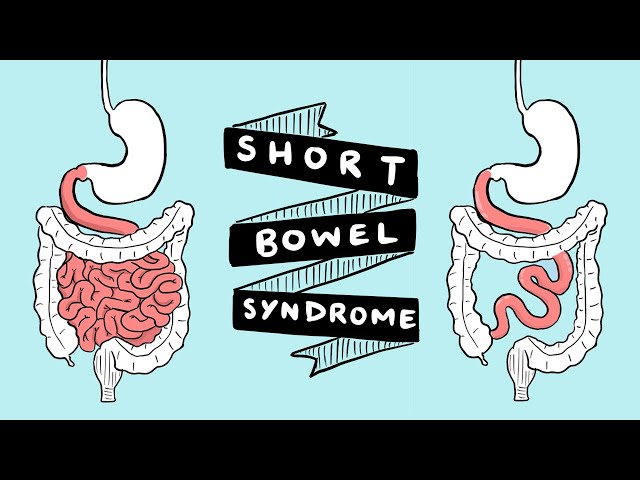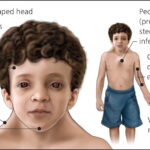Short bowel syndrome (SBS) is a rare but serious condition that arises when a significant portion of the small intestine is removed or rendered nonfunctional. This can result in severe malabsorption, as the small intestine is essential for the absorption of nutrients, water, and electrolytes. Patients with SBS often experience challenges with digestion and nutrient absorption, leading to malnutrition, dehydration, and other serious health issues.
Short bowel syndrome can arise as a result of surgery, trauma, or congenital abnormalities. Managing SBS requires a comprehensive approach that includes dietary adjustments, medication, and sometimes surgery. In this article, we explore the causes, symptoms, diagnosis, treatment options, and long-term management strategies for individuals affected by short bowel syndrome.

What Causes Short Bowel Syndrome?
Surgical Resection of the Small Intestine
The most common cause of SBS is surgical removal of the small intestine due to conditions like Crohn’s disease, cancer, or trauma. The extent of the bowel removed and the remaining length of the small intestine significantly impact the severity of SBS. The greater the portion of the small intestine removed, the more challenging it becomes for the body to absorb nutrients effectively.
Traumatic Injury or Disease
In some cases, trauma to the abdomen or conditions such as mesenteric ischemia (reduced blood flow to the intestines) can damage the small intestine. The removal of damaged sections of the intestine may lead to SBS.
Congenital Disorders
Certain genetic conditions or birth defects, such as intestinal atresia, can result in short bowel syndrome from birth. These congenital issues may require early intervention to manage nutrient absorption and prevent severe malnutrition.
Other Causes
- Severe infections or inflammatory diseases, such as intestinal volvulus (twisting of the intestines), can also result in SBS.
- Radiation therapy for abdominal cancer may lead to the destruction of the small intestine, contributing to SBS.
Recognizing the Symptoms of Short Bowel Syndrome
Short bowel syndrome presents with a range of symptoms, primarily related to the body’s inability to properly absorb nutrients, fluids, and electrolytes. Symptoms can vary depending on the extent of the intestinal loss and the presence of other health conditions.
Common Symptoms of SBS:
- Chronic diarrhea: Due to the inability to absorb fluids and electrolytes properly.
- Nutritional deficiencies: Resulting from the small intestine’s reduced capacity to absorb essential nutrients like vitamins, minerals, and fats.
- Weight loss and malnutrition: As the body is unable to absorb enough calories and nutrients to maintain normal body functions.
- Dehydration: Due to excessive fluid loss from diarrhea and poor absorption of water.
- Fatigue and weakness: Caused by both nutritional deficiencies and dehydration.
- Abdominal cramping and bloating: From altered digestion and malabsorption.
If left untreated, short bowel syndrome can result in serious complications, such as intestinal failure and organ dysfunction.
Diagnosing Short Bowel Syndrome
Diagnosis of SBS is typically based on a patient’s medical history, symptoms, and imaging tests. The healthcare provider will assess the extent of bowel loss and any underlying conditions that might be contributing to the disorder.
Key Diagnostic Methods:
- Medical History and Physical Examination: A detailed assessment of the patient’s surgical history, trauma, or disease that might have led to bowel resection.
- Imaging Tests: Imaging techniques such as CT scans, MRI, and X-rays can help evaluate the length of the remaining intestine and identify complications.
- Blood Tests: To check for signs of malnutrition, dehydration, and electrolyte imbalances.
- Small Bowel Transit Time Studies: This test evaluates how long food and fluids take to travel through the small intestine, which is essential in assessing the functionality of the remaining bowel.
A multidisciplinary team including gastroenterologists, dietitians, and surgeons is often involved in the diagnosis and ongoing management of SBS.
Treatment Options for Short Bowel Syndrome
Managing short bowel syndrome is multifaceted and typically involves a combination of dietary interventions, medications, and sometimes surgical procedures. The goal is to optimize nutrient absorption and prevent complications such as malnutrition and dehydration.
1. Nutritional Support
Nutritional management is critical for individuals with SBS, as they often experience severe nutrient deficiencies. The use of oral rehydration solutions, specialized diets, and supplementation can help improve the absorption of nutrients.
Dietary Recommendations:
- Low-fat, high-protein diet: To help with the absorption of nutrients and prevent weight loss.
- Frequent, small meals: To avoid overwhelming the digestive system.
- Vitamin and mineral supplementation: Essential for addressing deficiencies, particularly in vitamins A, D, E, K, B12, and calcium.
For patients who cannot absorb sufficient nutrients through diet alone, parenteral nutrition (PN), which involves intravenous delivery of nutrients, may be required.
2. Medications
Several medications may be prescribed to help manage symptoms and improve nutrient absorption in individuals with SBS:
- Anti-diarrheal medications: To control diarrhea and improve fluid retention.
- Motility agents: Medications like loperamide or octreotide can slow down bowel movements, allowing more time for nutrient absorption.
- Bile acid sequestrants: These medications can help reduce diarrhea caused by excessive bile acids in the intestines.
- Growth factors: In some cases, medications like glucagon-like peptide-2 (GLP-2) can stimulate the growth of the remaining bowel and improve nutrient absorption.
3. Surgical Interventions
In severe cases of SBS, surgical options may be considered to improve function or to lengthen the bowel:
- Bowel lengthening procedures: Such as the Bianchi procedure or Serial Transverse Enteroplasty (STEP), which attempt to increase the surface area of the remaining small intestine.
- Intestinal transplant: In cases where the intestine cannot function adequately, a small bowel transplant may be necessary.
Managing Long-Term Complications of Short Bowel Syndrome
Patients with SBS are at risk for several long-term complications, which need to be closely monitored and managed. These include:
1. Intestinal Failure:
This occurs when the small intestine is no longer able to absorb enough nutrients to sustain life, requiring patients to rely on parenteral nutrition or intestinal transplant.
2. Kidney Stones:
Due to the loss of important minerals like calcium, patients with SBS may develop kidney stones, which require careful management of hydration and electrolyte levels.
3. Liver Disease:
Long-term parenteral nutrition can lead to liver damage, requiring close monitoring and sometimes liver transplantation.
4. Bone Health Issues:
Malabsorption of calcium and vitamin D can lead to osteoporosis and other bone-related complications. Supplements and medications may be required to maintain bone health.
Living with Short Bowel Syndrome
Short bowel syndrome presents significant challenges due to its impact on digestion and nutrient absorption. However, with appropriate treatment and ongoing care, individuals with SBS can lead fulfilling lives. Early diagnosis, effective nutritional support, and the right medical treatments can mitigate many of the complications associated with the condition.
By addressing the root causes, managing symptoms, and using a combination of dietary interventions and medical treatments, individuals with SBS can improve their quality of life and reduce the risk of severe complications.

